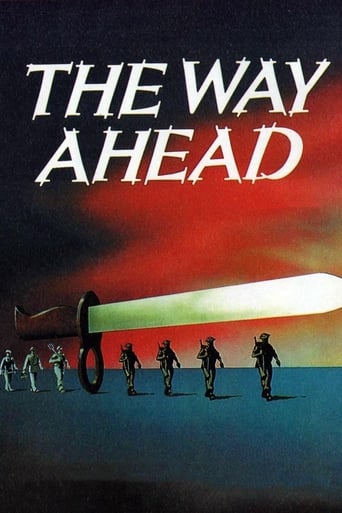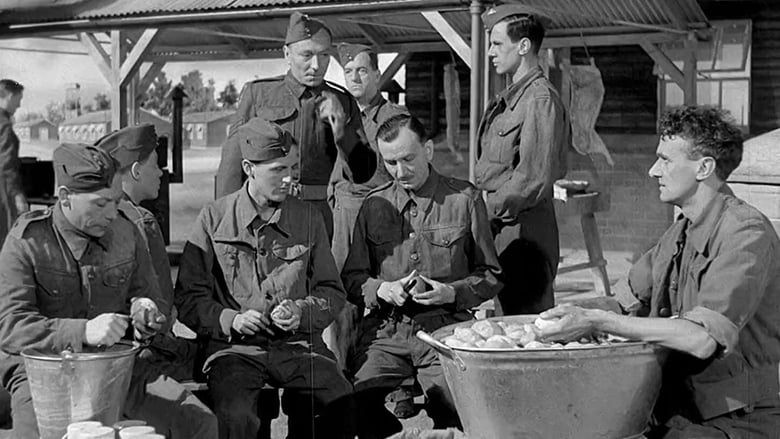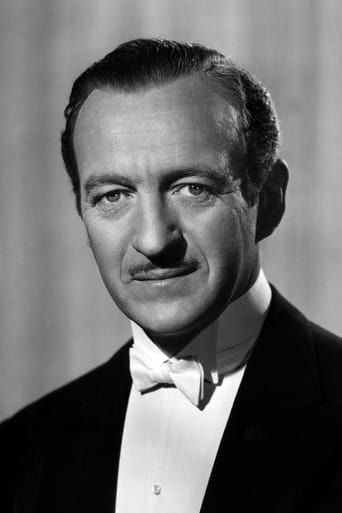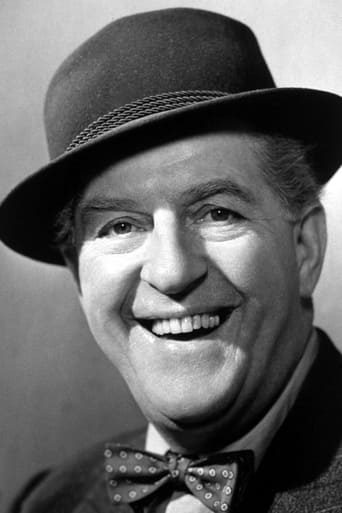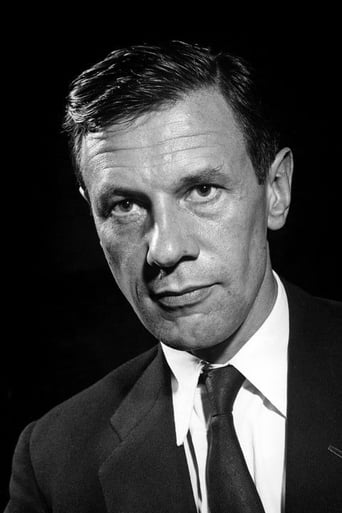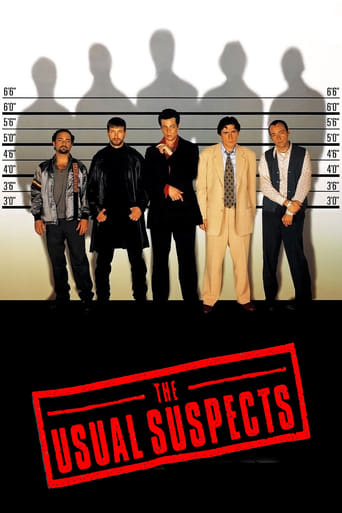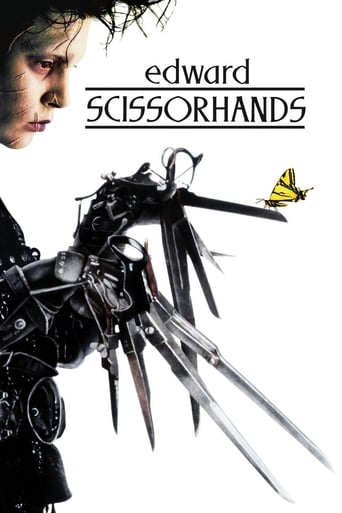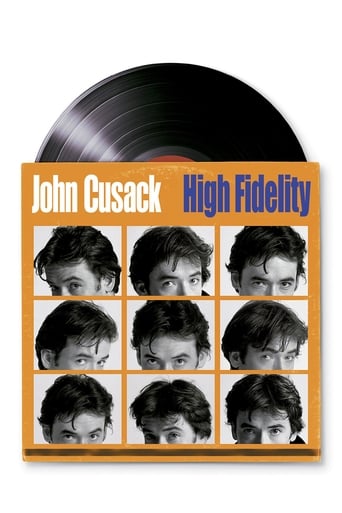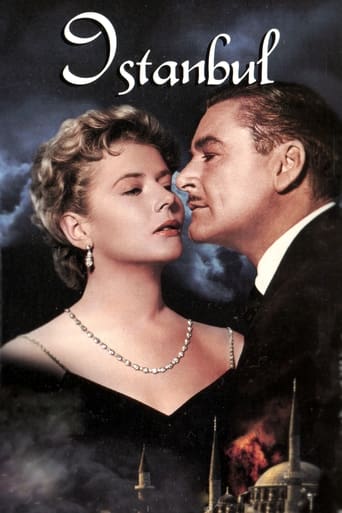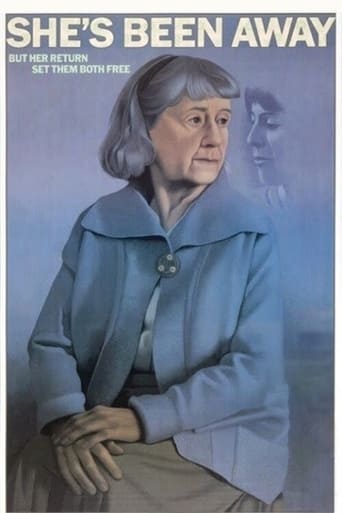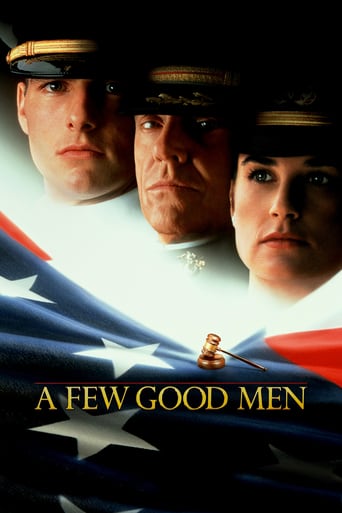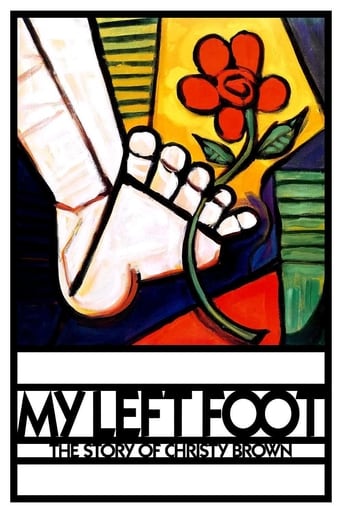The Way Ahead (1945)
A mismatched collection of conscripted civilians find training tough under Lieutenant Jim Perry and Sergeant Ned Fletcher when they are called up to replace an infantry battalion that had suffered casualties at Dunkirk.
Watch Trailer
Cast
Similar titles
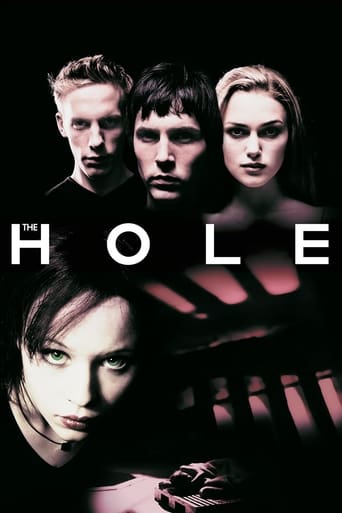
Reviews
Too much of everything
Absolutely Brilliant!
A waste of 90 minutes of my life
At first rather annoying in its heavy emphasis on reenactments, this movie ultimately proves fascinating, simply because the complicated, highly dramatic tale it tells still almost defies belief.
There's a very long setup in The Way Ahead, and while I understand that it's necessary, I wish I had known about it beforehand. This is a pretty heavy war drama, and the first half of the film is spent getting to know the characters of the soldiers, establishing the relationship between the regiment and their commanding officer, and their training to prepare for battle. Those three elements are very important to the story, and perhaps given this warning you'll have more patience with the film than I did. I thought it was going to be a battlefield movie; I'm sure I'll appreciate the film much more the second time around.David Niven plays the commanding lieutenant, and for the first half of the film, he continually clashes with his troops. They badmouth him, refuse to cooperate, and begrudge his trying to get them into shape and ready for WW2. There's a very touching scene when they finally realize Niven is just as human as they are, and from that point on, they all get along. What conflict is left to further the second half of the film, if everyone likes each other? World War Two!This turns out to be a pretty tense war drama, and the very applicable title will make more sense to you after you watch it. My advice is to be prepared for an emotional investment that may or may not pay off in the long haul. It'll take a while, but you'll get immersed in the characters and their world, and when the movie's over you'll probably feel drained. WWII lovers are going to want to add this one to their lists.
War films produced during WWII are very different to those released in the decades afterwards. Back then, it was an honour and a privilege to fight for one's country, and dying was often an essential part of a soldier's service. This idealistic cinematic patriotism apparently emerged in the late-1930s in response to the rise of Nazism, with Hollywood filmmakers swiftly abandoning the tragic, sobering view of war explored in earlier films such as Milestone's 'All Quiet on the Western Front (1930).' The primary motives of WWII war films can usually be whittled down to three simple phrases: we're good; they're evil; we're going to win. These works of propaganda have obviously long since lost their topicality, and most cease to be anything but historical curios. 'The Way Ahead (1944)' does nothing of the sort. Having started its life as an army education short called 'The New Lot (1943),' this film had every opportunity to wind up as nothing more than a propaganda piece, but director Carol Reed knew what he was doing. For fans of British cinema, this is an unexpected treat.Unlike most war films of the era, 'The Way Ahead' contains hardly an ounce of propaganda. With the exception of one very brief scene (in which a soldier verbosely extols the virtues and importance of the armed infantry), the film never speaks down to its audience, and rarely feels as though it is trying to communicate an underlying agenda. Above all else, Reed's film is about human relationships, and how a ramshackle selection of mismatched recruits can evolve into a close-knit squad of soldiers who respect each other and can work together towards a common goal. That this common goal is ultimately the eradication of the Nazis is addressed only indirectly, and, fortunately, we're spared a bravura closing monologue about an impending Allied victory. The film instead closes with its British heroes marching purposefully through the fog, facing the unknown but full of courage and hope (reminiscent of 'Casablanca (1942)' two years earlier). Reed emphatically replaces the customary "The End" with "The Beginning," signalling hope for the future without ramming optimism down our throats.'The Way Ahead' succeeds as superior war drama because its characters are real people, and not merely symbols who represent an ideal. David Niven's character, Lieutenant Jim Perry, is a kind and understanding leader, perhaps the sort of man whose authority one could flout without fear of reprimand. Rather than exploiting his higher rank, Perry instead appeals to his recruits' sense of pride and camaraderie, eventually winning their obedience, not through power, but through loyalty. His soldiers, each man an interesting and individual character, are played by James Donald, John Laurie, Leslie Dwyer, William Hartnell and man-about-British-cinema Stanley Holloway, among others. Eric Ambler and Peter Ustinov's screenplay covers a lot of territory. Without ever feeling rushed, the film covers the pre-military lives of the soldiers, the patchy first weeks of training, their development into a cohesive group, their disastrous first attempt at entering the war, and their final heroic efforts in fighting the Germans including an earth-shattering battle sequence that sees entire buildings crumbling to the ground.
The threat of World War II hangs heavy and British civilians are called to basic military training in preparation for combat. Here we follow a very mixed bunch of men indeed, coming from all walks of life and divided by the class system, these men refuse to embrace the army way of life. As the training moves on and the men start to learn their craft, it becomes apparent that they are soon to see action, and sure enough these odd assortment of soldiers are called to finally prove their worth, not only as soldiers, but also as men of equal stature.Essentially a story of how war doesn't discriminate against the classes, Carol Reed's The Way Ahead boasts a fine cast on form and a script of character driven intelligence. Acting as a sort of call to arms to a country under pressure, the picture however now looks incredibly dated unless one can comprehend the time frame the picture deals with. It's well crafted {to be expected with Carol Reed in the directors chair}, and the last quarter, where the walls literally do come tumbling down, is octane effective and closes the film with triumphant might.Enjoyable picture for sure, but really not one to seek out at regular intervals. 6.5/10
Ubercommando compares 'J Wayne and H Bogart' unfavourably with the cast of this film who were actually serving in the British forces. Well, what about Clark Gable, James Stewart, Tyrone Power, Alan Ladd, Robert Ryan...there is a long list of top American stars who saw active service. On the other hand many British stars saw fit to stick with the acting. To suggest that, in general, American actors were shirkers while the British were sterling fellows is offensive and untrue. It's also worth pointing out that many actors who wanted to join up were specifically asked not to on the basis their propaganda value was greater than their value as individual servicemen, so we shouldn't rush to judgment (and those of us born after the war have no business making judgments anyway.) As to the film, I found it an engrossing account of how men are turned into soldiers. It has much in common with the early episodes of Band of Brothers, although naturally it did not dwell on the horrors of war; after all, the war was still going on and they didn't want to send potential recruits running for the hills. I recommend it warmly but recognize that it will have little appeal for a lot of people.
